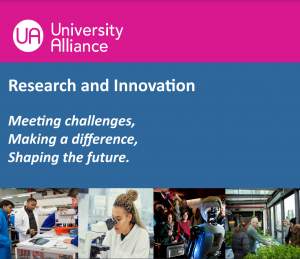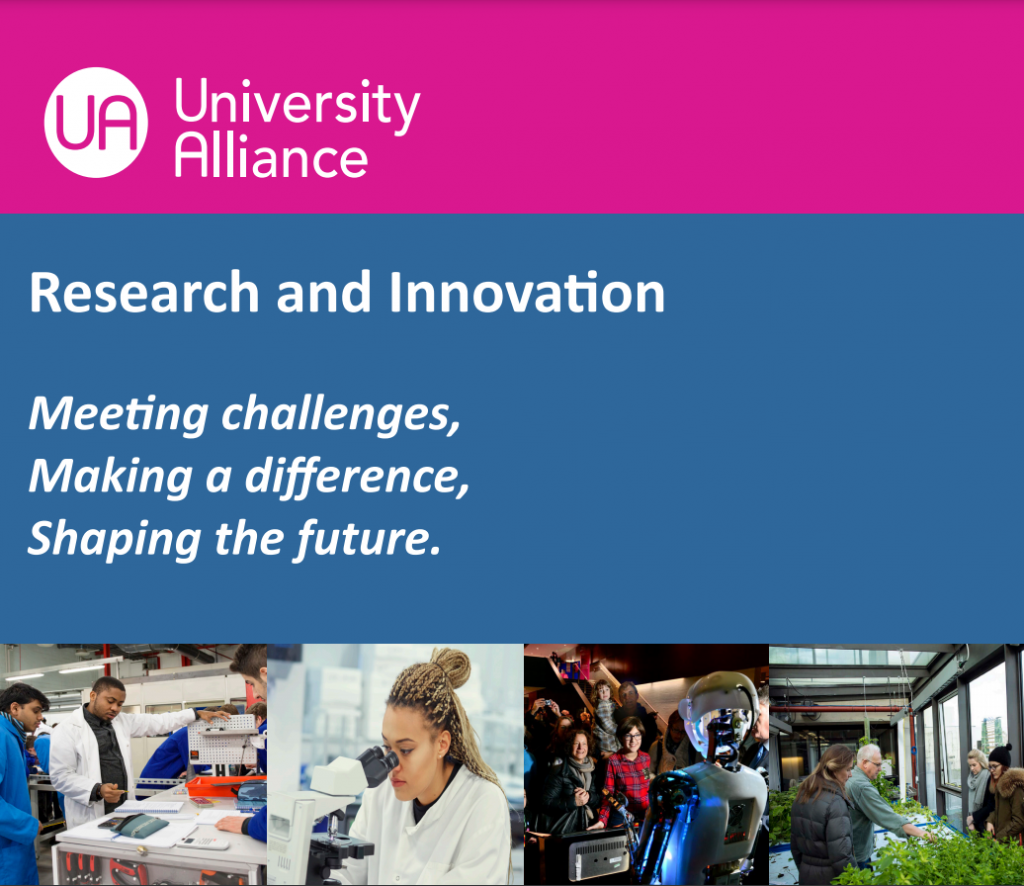 A new publication released 10 March by University Alliance (UA) showcases how research taking place in universities across the Alliance is delivering local and global impact.
A new publication released 10 March by University Alliance (UA) showcases how research taking place in universities across the Alliance is delivering local and global impact.
Launched to coincide with British Science Week, the publication uses case studies to highlight how Alliance universities work with partners to address real-word challenges, and to deliver research activities that directly benefit people, communities, businesses and wider society; across the UK and around the world. Examples include supporting the elimination of malaria globally, improving the accuracy of pre-natal screening, new policy guidance to support those with dementia, and working with SME’s and global corporations to reduce energy use.
The report also highlights how research undertaken by Alliance universities is helping to tackle the Covid pandemic, including the development of faster and reliable tests; drug treatments to reduce the severity of Covid symptoms on the most vulnerable patients; the creation of new vaccines as well as supporting the manufacture and rollout of existing vaccines.
On the week of International Women’s Day, the publication also identifies some of the steps Alliance universities are taking to embed equality, diversity and inclusion across their research programmes, to support more underrepresented groups into academia, and to address barriers faced by students and staff. The publication also emphasises the need for early intervention in developing talent, and highlights particular initiatives aimed at supporting Early Career Researchers.
The publication has been developed following a roundtable held between UA’s Research and Innovation Network and UKRI CEO Professor Dame Ottoline Leyser, during which UA members emphasised their shared commitment to supporting an inclusive and positive research culture.




